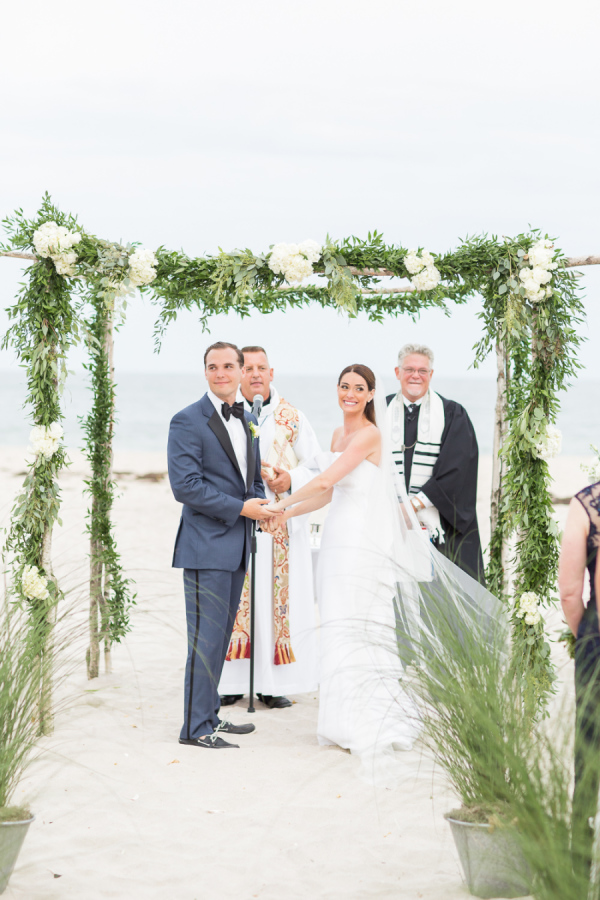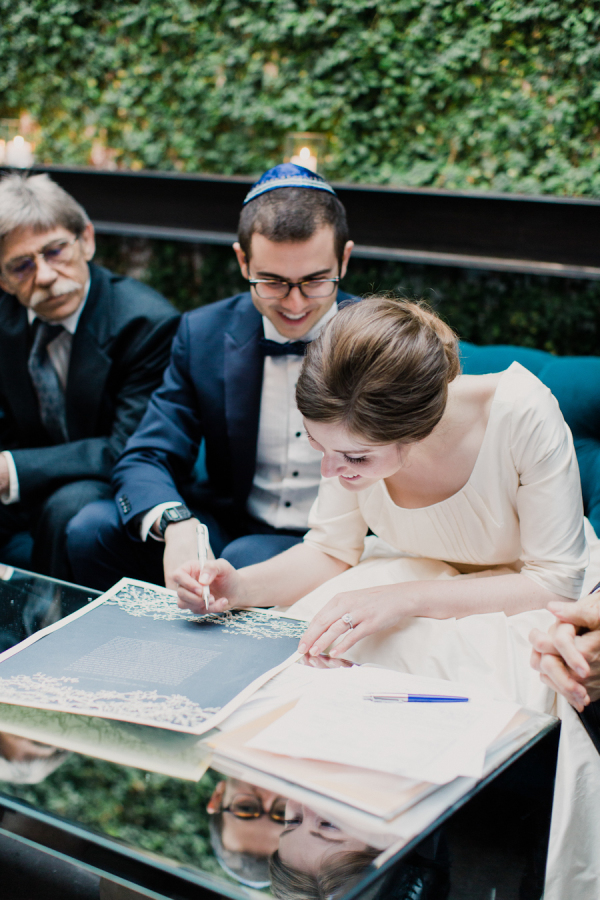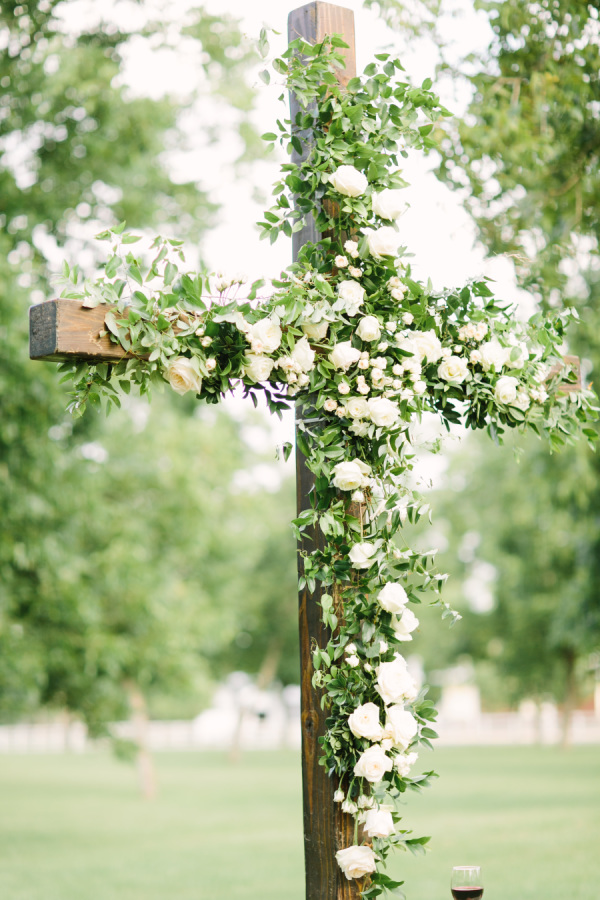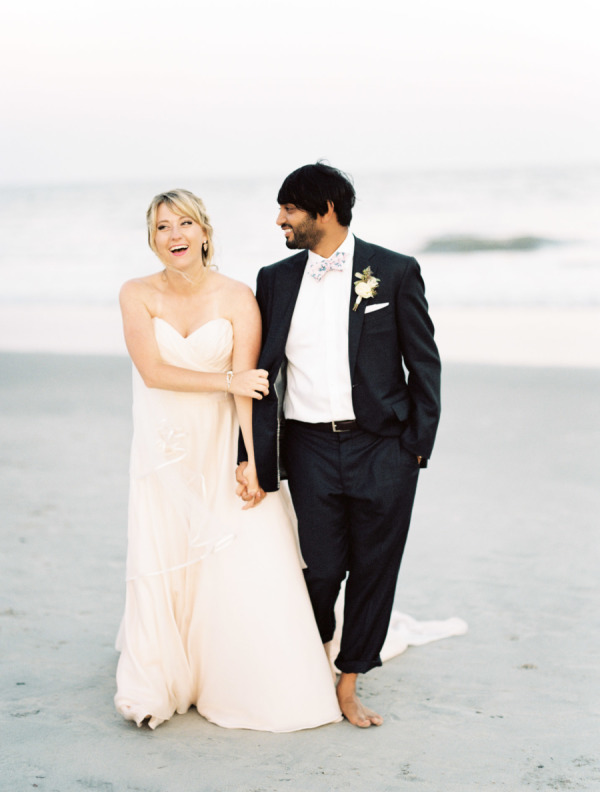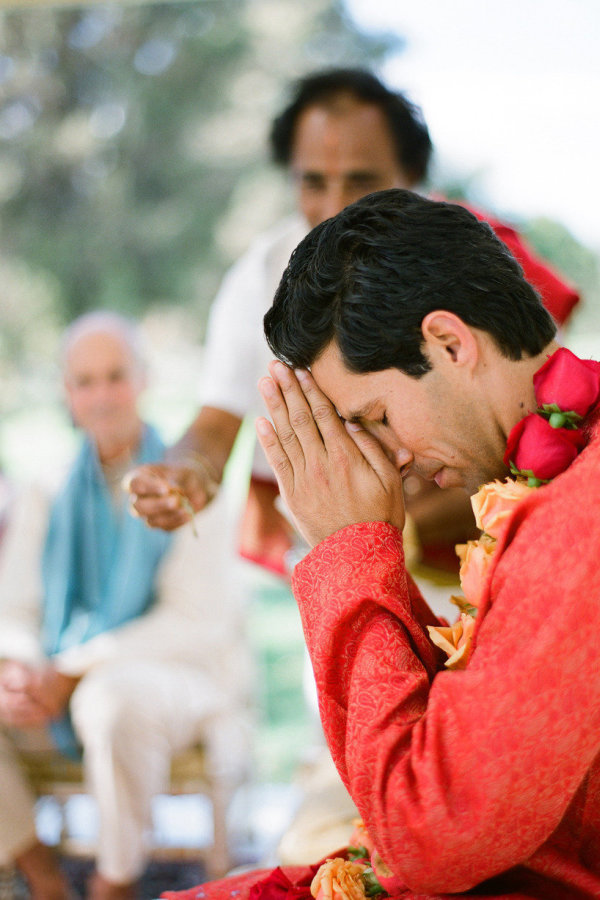Fusing two (or more) faiths into one marriage can be tricky – and emotional. Planning a wedding that will celebrate multiple traditions can be helpful, though, because it will start conversations about how you plan to prioritize your faith and what that will look like in your own marriage.
If you’re planning an interfaith wedding, here are some things to consider:
Remember the common denominator
The transformative power of love weaves through all religions and cultures. So no matter which you claim, you will be strengthened by the love you share for each other. Keep that top of mind as you’re beginning the planning process. At the end of the day, love is the reason you said, “yes!”
Stick to what YOU want
Because religion is so personal, you could hear a LOT of differing opinions from family and friends. It’s easy to get weighed down by the pressure of pleasing all the people who mean so much to you. The first step to any interfaith wedding: decide what YOU want and stick to it. While planning your wedding, the only people you need to please are you and your fiancé.
But have an honest conversation with your parents
It’s never a good idea to blindside your parents at your wedding. If you think they’ll be surprised by, say, your recent conversion to Catholicism. Or if they never knew your boyfriend was Buddhist, you should probably give them a heads up before the monk chants his blessing. Managing their expectations on the front end will help make the day happier for everyone – and avoid awkward conversations during the reception.
Consider one fusion ceremony
Depending on your venue, you might consider incorporating both traditions into one ceremony. This could work for couples who share similar faiths (a Catholic priest giving a blessing during a Protestant wedding ceremony) or a couple who wants to blend two different religions (exchanging mangalya -a Hindu wedding necklace – and wedding rings). Fusing multiple faith traditions – or even officiants – into one ceremony can be a beautiful way for a couple to show compromise in their relationship.
Or plan two separate ceremonies
If you’ve always dreamed of a traditional ceremony, there’s no reason you shouldn’t plan one! This is a popular choice for couples whose religions are key to both their identities (or international families). Plan two ceremonies – one to honor each faith or culture. Some couples choose to have both on the same day, or spread them out over two days or two countries! Besides, who doesn’t love another celebration?
Consider a destination wedding
Destination weddings are popular for interfaith ceremonies because you can avoid potential issues with religious venues. Some houses of worship do not allow officiants or scripture readings from other religions. Rather than risk disrespecting anyone’s hometown priest or pastor, couples jet set to a beautiful location to have a ceremony all their own.
Pick an officiant
You could choose one religious leader, a few religious leaders, or a close friend. Talk with your officiant about the message you want shared during your ceremony. If you go with one, you might want to highlight the similarities – like love and peace – your two faiths share. If you’re looking for two messages – or two languages – multiple officiants could be the way to go.
Honor each culture
Brainstorm a few ways to pay respect to each faith. Consider traditional dress – whether that’s a white wedding dress or a reflection of your cultural background. Research wedding traditions, like signing the ketubah, a henna party, or sapthapadi (seven steps around the fire). And incorporate music that reflects each religious style.
Select scripture, poetry, or inspirational reading
Read a scripture passage, a blessing, a hymn, or a poem from each faith. Select a common theme – like love – and find inspirational writing from, say, the Bible and the Qur’an to support it. Sharing these commonalities can help bond weddings guests from both sides of the aisle – and the faith.
Set expectations with your wedding planner, officiant, wedding band, etc.
Make sure your wedding planner, emcee, officiant – anyone responsible for elements of your wedding – knows exactly what you want (and don’t want) on your big day. That way, if well-intentioned guests request specific traditions – like the Horah for a Jewish wedding reception – your planner or DJ will know how to handle it. You might be down, or you might decide in advance you want to skip certain religious traditions. Communicate well ahead of time if you’ll have any specific dietary requests – like a kosher menu or a hard-to-find ingredient. Setting expectations will help avoid any potential conflict around interfaith celebrations.
Planning a wedding is no small feat. And adding multiple faiths to the ceremony can be a big challenge. As long as respect for each other’s faith is your foundation, you’re in a good place to start having conversations around how to incorporate both into your ceremony. No matter the religion – everyone can agree that love and family are worth celebrating!
Style Me Pretty Contributor – Madeline Littrell is a corporate PR strategist and freelance writer. Born and raised in the South, she loves big hair, country music, and chicken fingers. Madeline lives in Dallas with her Sheltie puppy, Tennessee.
© Style Me Pretty, 2017. |
|
|
Add to
del.icio.us
Post tags: Interfaith Ceremony, Traditions, Weddings 101
Post categories: Ceremony, Planning & Advice

